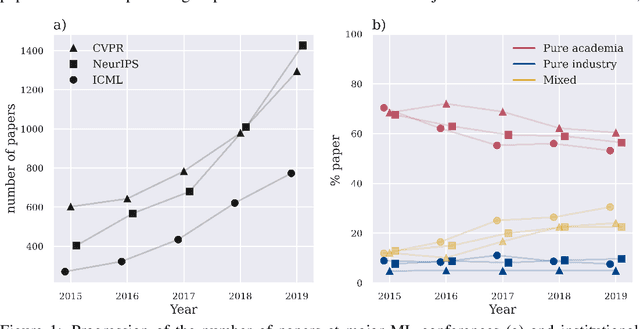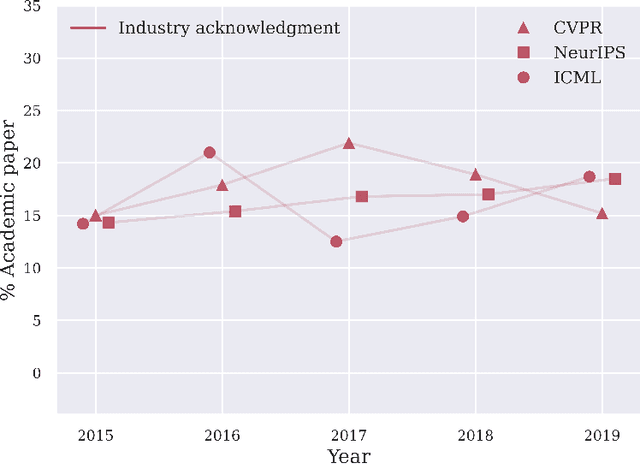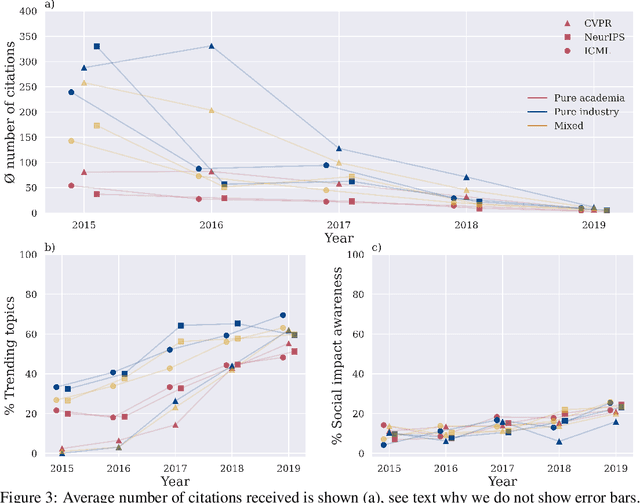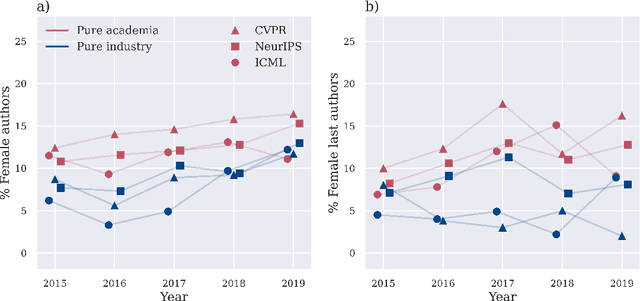The Big Picture: Ethical Considerations and Statistical Analysis of Industry Involvement in Machine Learning Research
Paper and Code
Jun 08, 2020



It is commonly believed among the machine learning (ML) community that industry influence on the community itself as well as the scientific process is increasing since tech companies have begun to allocate a large amount of human and monetary resources to ML. However, concrete ethical implications and the quantitative scale of this influence are rather unknown. For this purpose we have not only carried out an informed ethical analysis of the field, but have inspected all papers of the main ML conferences NeurIPS, CVPR and ICML of the last 5 years - almost 11000 papers in total. Our statistical approach focuses on conflicts of interest, innovation and gender equality. We have obtained four main findings: (1) Academic-corporate collaborations are growing in numbers. At the same time, we found that conflicts of interest are rarely disclosed. (2) Industry publishes papers about trending ML topics on average two years earlier than academia. (3) Industry papers are not lagging behind academic papers concerning social impact considerations. (4) Finally, we demonstrate that industrial papers fall short of their academic counterparts with respect to the ratio of gender diversity. The results have been reviewed in the light of related research works from ethics and other disciplines. For the first time we have quantitatively analysed the influence of industry on the ML community. We believe that this is a good starting point for further fine-grained discussion. The main recommendation that follows from our research is for the community to openly declare conflicts of interest, also subtle or only potential ones, to foster trustworthiness and transparency.
 Add to Chrome
Add to Chrome Add to Firefox
Add to Firefox Add to Edge
Add to Edge